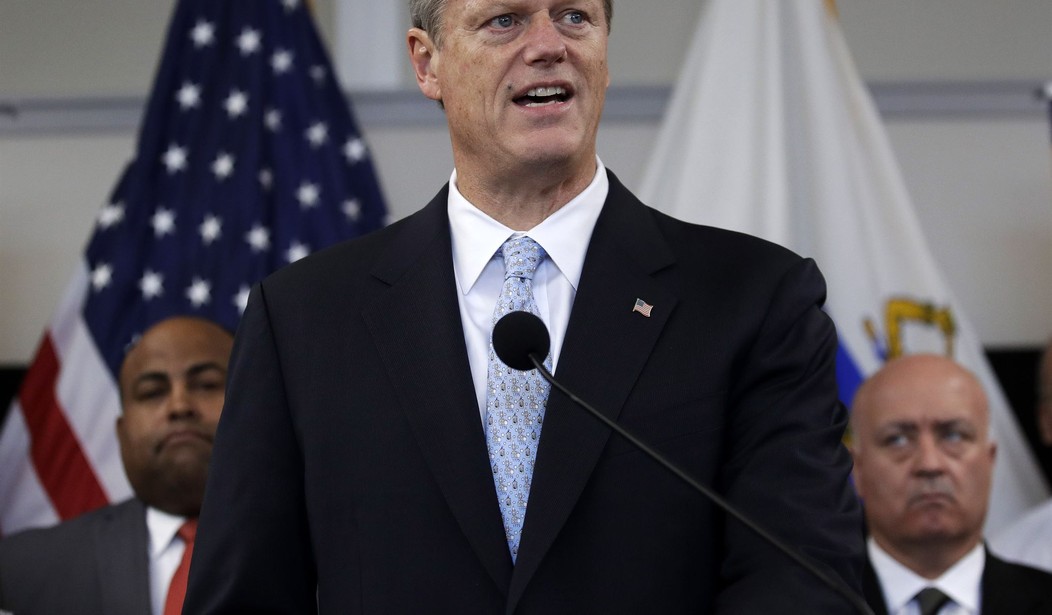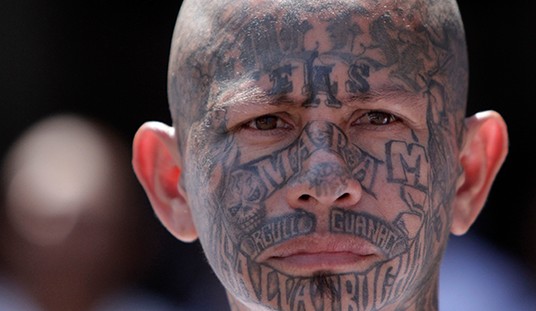Massachusetts’ Republican Governor Charlie Baker has, up until now, charted a fairly conservative course on pandemic mandates, specifically allowing local school districts to set their own policy when it comes to masking mandates and vaccination policies. That suddenly changed this week. A new mandate was unveiled that will require face masks to be worn by everyone in all schools until at least the beginning of October. The “credit” for the mandate is being given to the state Education Commissioner and the Board of Elementary and Secondary Education voted for it overwhelmingly, but you just know that none of this would have happened if Baker hadn’t signed off on it in advance. The excuse being offered is the same as we’re seeing in many other blue states: fear of the Delta variant. (Boston Globe)
State education board members cleared the way Tuesday for a universal indoor mask mandate in Massachusetts schools, marking a stark pivot for Governor Charlie Baker’s administration, which for weeks put the onus of in-school mask policies on local leaders.
The vote came just days after Baker and Education Commissioner Jeffrey Riley unveiled a proposed mask mandate that would require all students and staff members to mask up inside until at least early October. It’s one of several major shifts in the last week as the COVID-19 threat increases with the spread of the highly transmissible Delta variant.
The Massachusetts Board of Elementary and Secondary Education voted 9 to 1 to give Riley the authority to issue a mandate, putting an end to several weeks of turmoil and disagreement in local districts, where school committees and other leaders had been tasked with building their own mask-wearing policies while facing pressure from parents and teachers alike.
This is a disappointing decision by Baker, to say the least. It’s pretty much the opposite of how a school district in western Pennsylvania handled the issue last week.
The local control option will always be preferable to a statewide mandate. Both infection rates and transmissibility vary from place to place and that applies to Massachusetts as much as anywhere else. Urban districts with denser populations may see wider fluctuations in new cases and hospitalizations, so they might opt for mandatory masking. More rural areas probably have far fewer cases and wouldn’t choose to burden the parents and the children in this fashion. What works in Boston may be totally wrong for farm country.
It’s difficult to ignore the possibility that politics played a significant role in this decision. Massachusetts is a state where Democrats hold a more than two-to-one registration advantage. Baker and his deputy are the only two Republicans to currently hold state-wide office. Since the state doesn’t have term limits, Baker is eligible to run for a third term next year, but he won’t keep his office if he begins being viewed as one of “those Republicans” by the voters.
Other blue states with Democratic governors are jumping on the school mask mandate bandwagon on a regular basis. I’m guessing that Baker didn’t want to be seen as bucking the tide. Considering how low transmission rates have been shown to be in schools and the high vaccination rates in Massachusetts (74% have had at least one shot), this mandate was almost certainly unnecessary. But it wouldn’t take much effort for his Democratic opponents to make a refusal to enforce a mask mandate their central issue in next year’s campaign.








Join the conversation as a VIP Member